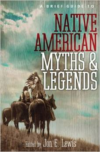Description
For more than fifteen hundred years Yupik and proto-Yupik Eskimo peoples have lived at the site of the Alaskan village of Gambell on St. Lawrence Island. Their history is a record of family and kin, and of the interrelationship between those who live in Gambell and the spiritual world on which they depend; it is a history dominated by an abiding desire for community survival.
Relying on oral history blended with ethnography and ethnohistory, Carol Zane Jolles views the contemporary Yupik people in terms of the enduring beliefs and values that have contributed to the community’s survival and adaptability. She draws on extensive interviews with villagers, archival records, and scholarly studies, as well as on her own ten years of fieldwork in Gambell to demonstrate the central importance of three aspects of Yupik life: religious beliefs, devotion to a subsistence life way, and family and clan ties. Jolles documents the life and livelihood of this modern community of marine mammal hunters and explores the ways in which religion is woven into the lives of community members, paying particular attention to the roles of women. Her account conveys a powerful sense of the lasting bonds between those who live in Gambell and their spiritual world, both past and present.






Reviews
There are no reviews yet.